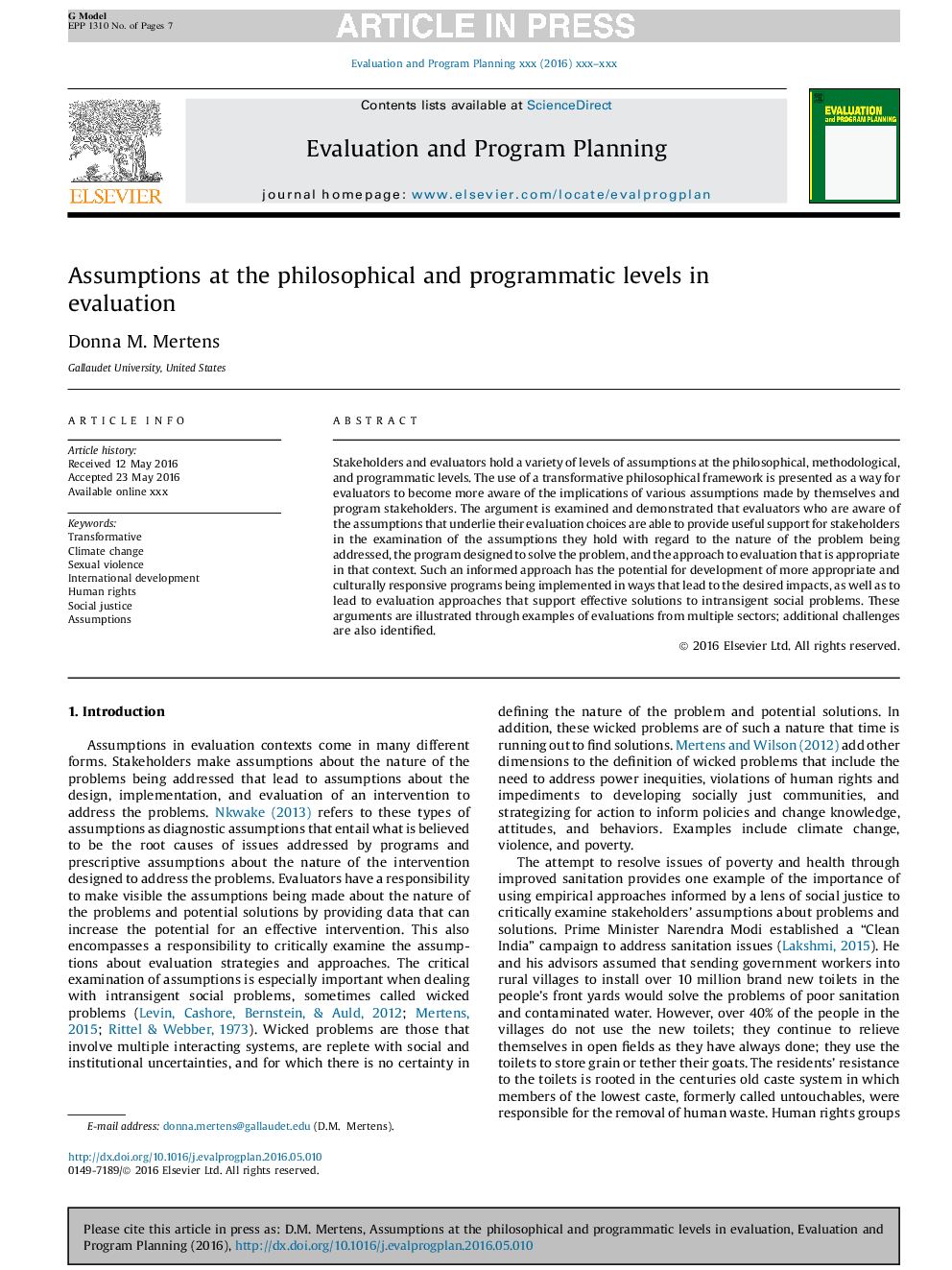| Article ID | Journal | Published Year | Pages | File Type |
|---|---|---|---|---|
| 6792410 | Evaluation and Program Planning | 2016 | 7 Pages |
Abstract
Stakeholders and evaluators hold a variety of levels of assumptions at the philosophical, methodological, and programmatic levels. The use of a transformative philosophical framework is presented as a way for evaluators to become more aware of the implications of various assumptions made by themselves and program stakeholders. The argument is examined and demonstrated that evaluators who are aware of the assumptions that underlie their evaluation choices are able to provide useful support for stakeholders in the examination of the assumptions they hold with regard to the nature of the problem being addressed, the program designed to solve the problem, and the approach to evaluation that is appropriate in that context. Such an informed approach has the potential for development of more appropriate and culturally responsive programs being implemented in ways that lead to the desired impacts, as well as to lead to evaluation approaches that support effective solutions to intransigent social problems. These arguments are illustrated through examples of evaluations from multiple sectors; additional challenges are also identified.
Keywords
Related Topics
Health Sciences
Medicine and Dentistry
Public Health and Health Policy
Authors
Donna M. Mertens,
